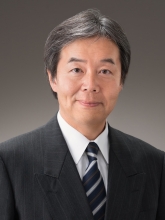EECS Seminar: Green Multicore Computing

IEEE Computer Society President 2018,
Senior Executive Vice President
Director Advanced Multicore Processor Research Institute
Professor, Department of Computer Science and Engineering
Waseda University, Tokyo, Japan
Abstract: Green multicore computing, or low-power high-performance multicore computing, has been getting more important for any ICT products including smartphones, self-driving vehicles, cancer treatment systems, model-based design control systems, cloud and high-performance servers. To realize these systems, a low-power, high-performance and user-friendly multicore and its software-like parallelizing and power-reducing compiler are key technologies. This talk introduces "OSCAR" (Optimally Scheduled Advanced Multiprocessor) architecture and compiler co-designed multicore, and its automatic parallelizing and power-reducing compiler, which has been researched for 35 years at Waseda University. The OSCAR compiler’s features are hierarchical coarse-grain task parallelization, global data locality optimization, automatic power-reduction control using DVFS, clock and power gating, software cache coherent control, and automatic local memory management for hard real-time control applications. OSCAR architecture has been designed to support the compiler optimizations. Performance and power evaluation on various multicores using OSCAR Compiler, such as Renesas multicore chip using OSCAR architecture, and commercial multicores including Intel, ARM, IBM, Fujitsu, Infineon and RISC V, are also shown in the talk.
Bio: Professor Hironori Kasahara, a senior executive vice president of Waseda University, in Tokyo, Japan, was the 2018 IEEE Computer Society president. He received his BS in 1980, MSEE in 1982 and PhD in 1985 from Waseda University. He joined the Waseda faculty in 1986 and has been a professor of computer science since 1997 and a director of the Advanced Multicore Research Institute since 2004. He was a visiting scholar at University of California, Berkeley, in 1985, and the University of Illinois at Urbana–Champaign’s Center for Supercomputing R&D from 1989 to 1990. Kasahara received the IEEE fellow designation in 2017, Spirit of IEEE Computer Society Award in 2019, CS Golden Core Member Award (2010), IEEE Eta Kappa Nu Professional Member (2017), IFAC World Congress Young Author Prize (1987), IPSJ (Information Processing Society of Japan) Sakai Special Research Award (1997), IPSJFellow (2015), Member of the Engineering Academy of Japan (2017), Member of the Science Council of Japan (2017) and a Science and Technology Prize of the Japanese Minister of Education, Culture, Sports, Science and Technology in 2014. He led Japanese national projects supported by METI (Ministry of Economy, Trade and Industry of Japan)/NEDO on parallelising compilers, embedded multicores for consumer electronics and green computing. He has presented 216 papers, 180 invited talks and 48 international patents. His research on multicore architectures and software has appeared in 612 newspaper and Web articles. He has served as chair or member of 260 society and government committees, including CS Board of Governors, Executive Committee, Planning Committee, chair of CS Multicore STC and CS Japan chapter; associate editor of IEEE Transactions on Computers, vice PC chair of the 1996 ENIAC 50th Anniversary ACM International Conference on Supercomputing, general chair of LCPC 2012, PC member of SC, PACT and ASPLOS, board member of IEEE Tokyo Section and member of the MEXT(Ministry of Education, Culture, Sport, Science and Technology of Japan) Earth Simulator Supercomputer committee and Information Science and Technology Committee.
Share
Upcoming Events
-
EECS 294 Seminar: Programming Light Diffraction for Information Processing and Computational Imaging
-
MAE 298 SEMINAR: Stretchable Electronics for Soft Biological and Robotic Systems
-
CBE Distinguished Lecture/CBE 298 Seminar: Computational Design of Peptides as Detectors, Sensors and Drugs
-
MSE 298 Seminar: Molecular Modeling in the Age of AI - From Energy Materials to Device Simulations
-
CBE 298 Seminar: Metal Electrodeposition for Modern Mineral Refining
